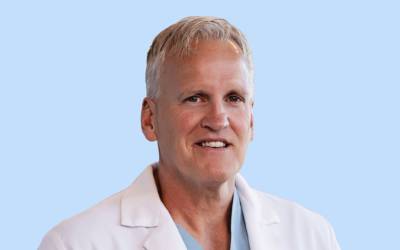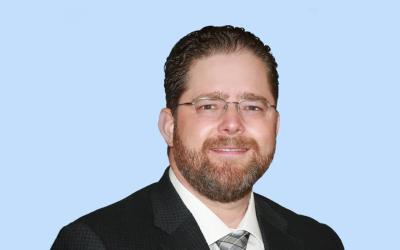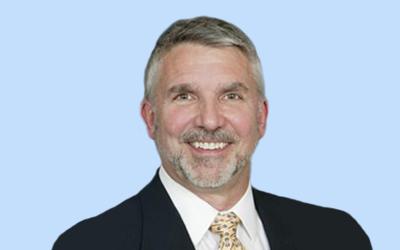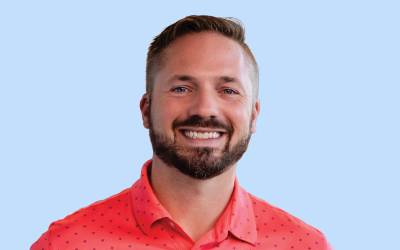About Our Spine Center
The Spine Center at Heartland Orthopedic Specialists was specifically designed for you. We provide our back, neck, and spine patients with comprehensive education and exceptional care through the combined knowledge, experience, and expertise of our specialty-trained back, neck, and spine providers. With their commitment to continued education through attending courses, lecturing, writing, and actively learning the newest procedures and techniques, our specialists are the most highly skilled back, neck, and spine providers in the area.
We’re With You—Every Step of the Way!
Our specialty-trained spine providers integrate all aspects of both surgical and nonsurgical specialized care by collectively combining their knowledge, experience, and expertise as the foundation of the Spine Center.
From starting with a nonsurgical approach to spine treatment to post-op therapy and rehabilitation, our experts ensure that each patient is provided with a complete continuum of care, ensuring that you will have the information, care, and support you need throughout the entire process.
Our Services
Alomere Health and Heartland Orthopedic Specialists partner together to provide the following services:
- Botulinum Toxin Injections
- Cervical Discectomy
- Cervical Fusion
- Electrodiagnostic Studies
- Injections
- Lumbar Facet Joint Blocks
- Lumbar Fusion
- Management of Thoracolumbar Deformity
- Open and Minimally Invasive Lumbar Discectomy/Foraminotomy
- Open and Minimally Invasive Lumbar Laminectomy
- Radiofrequency Ablation
- Spinal Cord Stimulator Placement
- Spinal Cord Stimulator Trials
The Spine Center provides our back, neck, and spine patients with access to consultation Monday through Friday.
Prior to your consultation, new patients will be asked to complete forms, which include medical history as well as demographic and insurance information. This information, along with any current diagnostic imaging (X-ray, CT, MRI), will be utilized by your provider to help in your diagnosis and treatment plan.
To schedule an appointment with one of our Spine Center providers, please schedule an appointment online or call (800) 762-1177.
Spine Center Testimonials
Frequently Asked Questions
These signs are also called "red flags" and indicate a serious problem that requires immediate attention and care. These can include:
- Sudden significant arm or leg weakness.
- Sudden loss of bowel and bladder control. This could be a sign of cauda equina syndrome. This is a true emergency that requires immediate evaluation possibly in an emergency department.
- A history of trauma, fever, unexplained weight loss, a history of cancer, long-term steroid use, and drug abuse.
- Intense localized pain.
The decision to consider back surgery should always come if your back or neck pain continues to be persistent and disabling after you’ve tried all nonsurgical or conservative options. The only exception would be for acute injury or a serious spine condition. You and your spine surgeon should make the decision together. Your surgeon will perform a comprehensive evaluation of your condition and may get imaging studies to help determine the problem, then your surgeon will sit down and discuss the options for surgery, a description of the surgery, the risks and benefits, and your recovery period. You are encouraged to participate in this decision-making by asking questions and doing your own independent research.
Yes, our goal at the Spine Center is to get you back to being healthy without the need for surgery. Surgery should usually only be considered when all other options have been exhausted. Nonsurgical care of the spine is the first step in getting back to being healthy. There are many options other than surgery that you can try. First, a healthy, active lifestyle is the most important defense to prevent the need for surgery. Some other first steps in nonsurgical treatments can include physical therapy, acupuncture, acupressure and massage therapy, aquatic/water therapy, nutrition/lifestyle changes, cupping, osteopathic manipulation, and chiropractic treatment. If those treatments alone are not enough, then other treatments can include injections, spinal cord stimulators, nerve blocks, or rhizotomy procedures. Finally, anti-inflammatory drugs like aspirin, ibuprofen, and acetaminophen can provide short-term relief for the pain. Prescription painkillers can be highly addictive and should only be used for short periods and under the strict guidance of a pain specialist. If all of this doesn’t provide relief, then you may be a candidate for spine surgery. We have an excellent spine surgeon who can evaluate your condition and discuss your surgical options with you.
It is common knowledge that smoking is bad for your overall health. Smoking may decrease your bone density, which increases the risk of osteoporosis. Smoking impairs your blood flow and deprives your spine of nutrients and the oxygen it needs to stay strong and healthy. It also can decrease your physical activity due to deoxygenated blood and damage done to your lungs. Your weakened cardiovascular system can cause walking to become difficult and painful, reducing your activity levels. Finally, smoking can keep you from healing after surgery as well as increase the development of blood clots and infections during recovery. We can help you quit smoking. We have resources that we can connect you with that can help, just ask. Some helpful hints for quitting or resisting the urge to smoke include:
- Nicotine replacement therapy.
- Avoid triggers situations where you typically feel the urge to smoke.
- Try to delay the urge, like going to a smoke-free public zone.
- Chew sugarless gum.
- Don't have "just one."
- Get some physical activity to distract you from the urge.
- Practice relaxation techniques.
- Ask for help from family members, friends, or a support group.
- Go online for support.
- Remind yourself daily of the benefits of not smoking.
Prevention is your best strategy for avoiding back or neck pain. Everyone has an episode of temporary back pain from time to time. Maintaining a healthy physical condition is key to avoiding long-term back pain. Some basic practices that you can follow include:
- Stretching before and after strenuous activity.
- Strengthening your core muscles via targeted exercises including aerobics, flexion, and extension stretches.
- Using good posture at all times while both sitting and standing. Ensure that you use proper ergonomic movements at all times. For example, when using a computer, be sure to have the keyboard and mouse adjusted for your physique.
- Do not sit for long periods without frequent breaks to get up and move around.
- Maintaining a healthy weight.
- Don't smoke or chew tobacco.
- Don't try to lift objects that are too heavy. When lifting, use your legs more than your back.
- Avoiding excessive amounts of alcohol.
- Practicing stress reduction techniques daily.
- Keeping hydrated. Drink plenty of water.
- Eating healthy. Stay away from processed food and sugars.
- Getting plenty of sleep. Sleep on a medium to firm mattress.
- Staying active, like walking every day for at least 10 – 30 minutes.
Depending on the circumstances, you may need to get imaging, like an MRI or CT scan, performed before your appointment. In cases of "red flag" conditions, like weakness, bowel and bladder dysfunction, a fracture, or cancer, our healthcare provider may need an image to make the appropriate diagnosis. In other cases, our advanced practice providers can see you, make the evaluation, and order conservative care for you without the need for imaging.
Physical therapy is one of the most commonly recommended treatments for back or neck pain. Physical therapy can provide relief without surgery in many cases. Your physician will refer you to a therapist who is specially trained in this type of care and who will use a combination of active and passive therapy to assist you in decreasing your pain and increasing physical function. Passive therapy includes things like heat or ice packs, ultrasound, or TENS units. Active therapy includes things like stretching, lumbar stabilization, or other exercises to strengthen the back, core muscle strengthening, and low-impact aerobic conditioning.
As you age, your spine, like many other parts of your body, starts to degenerate. Spinal discs lose water, degenerate, and become compressed, adding pressure to the joints and narrowing the spinal canal. By age 35, approximately 30% of people will show evidence of disc degeneration. By age 50, more than 90% of people will show evidence of some disc degeneration. Cartilage fades away, causing spinal arthritis resulting in low-back and radiating leg pain. Osteoporosis weakens the bone structures and may cause fractures in the spine. The best defense against this is a healthy lifestyle, healthy diet, and lots of exercise or physical activity.
No, bed rest as a part of treating back pain has a limited role in healing sore backs. It should only be done in very small doses. An extended period of bed rest isn’t helpful for moderate back strain at any stage of therapy. Muscles lose conditioning and tone with too much bed rest, possibly resulting in issues such as constipation or blood clots in your legs. Depression, malaise, and physical weakness are common among people confined to bed.




